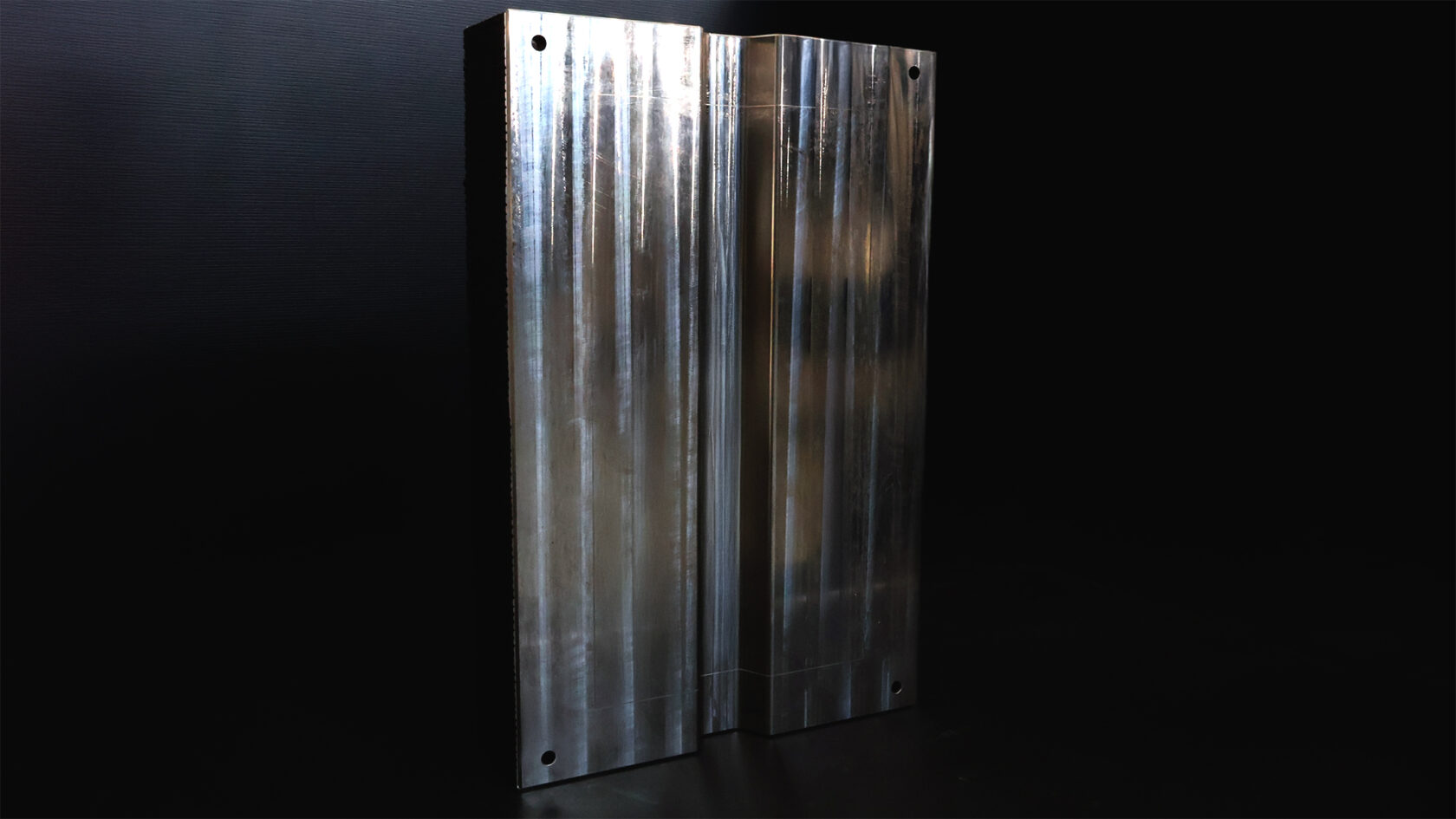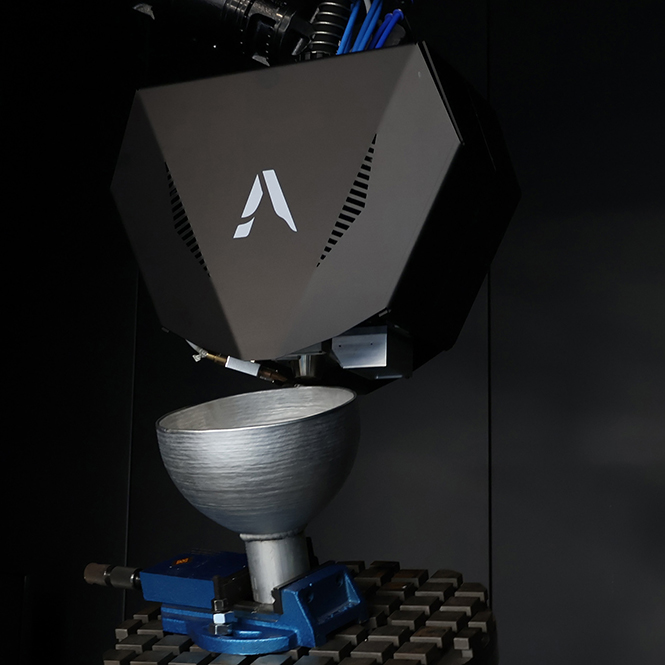
In aerospace manufacturing, the production of stiffened composite panels for aircraft fuselage sections requires specialized tooling that can withstand extreme temperatures while maintaining high precision. One such critical tool is the autoclave cure tool, specifically the stringer mold, used to shape composite materials. These molds must retain dimensional stability during the high-temperature autoclave curing process to prevent warping, ensuring the structural integrity of the composite panels.
Solution: Vipra AM and Invar 36
Caracol used its Vipra AM platform with Wire Arc Additive Manufacturing (WAAM) technology to produce a high-precision stringer mold from Invar 36—a nickel-iron alloy known for its near-zero thermal expansion and dimensional stability at temperatures up to 280°C. Invar 36’s thermal properties make it ideal for tooling exposed to repeated heating and cooling cycles in autoclave curing, providing high accuracy, durability, and efficiency in aerospace production.
Key Benefits
- Low Thermal Expansion (CTE): Invar 36 maintains stability up to 280°C, preventing dimensional changes during autoclaving and ensuring consistent quality in composite panels.
- Strength and Fatigue Resistance: Invar 36 withstands repeated thermal cycles without degrading, making it ideal for tooling that endures constant heating and cooling.
- Faster Lead Time with WAAM: The WAAM process allowed Caracol to quickly produce the complex stringer mold, significantly reducing lead time compared to casting or machining—critical for the aerospace industry.
- Durability and Precision: Invar 36’s durability ensures mold stability, preventing warping and maintaining precise tolerances over multiple production cycles, which is essential for aerospace applications.
Key Manufacturing Facts
- TECHNOLOGY: Vipra XP (WAAM, Cold Metal Transfer)
- MATERIAL: Invar 36
- POST-PROCESSING: CNC
- SIZE AND WEIGHT: 580 x 600 x 230, 70 Kg
- DEPOSITION RATE: 5 kg/h
- 3D PRINTING TIME: 14 hours
Conclusion
Caracol’s use of Vipra AM to manufacture a high-precision autoclave cure tool demonstrates the value of metal additive manufacturing in aerospace. By leveraging Invar 36, Caracol was able to produce a mold that combines low thermal expansion, mechanical strength, and fatigue resistance, ensuring consistent performance under extreme conditions. The integration of WAAM technology allowed for rapid production, reducing lead time and increasing efficiency. This case study highlights the potential of combining advanced materials and additive manufacturing to deliver cost-effective, durable, and high-precision tooling solutions in aerospace and beyond.







































